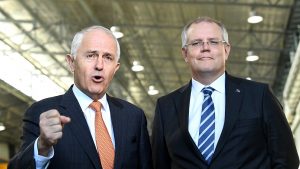There’s nothing quite like finally getting a foothold on the property ladder and moving into your very own pad, but it does require planning and research. With our help, you’ll soon be doing a victory dance and posting that exciting Facebook post of you in front of a shiny ‘SOLD’ sign. Here are our quick tips for buying your first home.
1) Talk to us about how much you can borrow
Your home ownership journey begins with a chat with your mortgage broker! There’s no point wasting your life inspecting properties that are outside your price range. We’ll help you determine your borrowing capacity, set your buying budget and explain about applying for the First Home Owner Grant and making the most of any other exemptions and savings you may be able to obtain to help you get started.
The amount you can borrow will depend on the size of your deposit, your savings history, income, expenses and credit history. It’s a good idea to save 20 per cent of the purchase price, plus the other costs associated with buying property like stamp duty, legal fees and building and pest inspections.
You may still be able to buy now even if you don’t have a 20% deposit, so talk to us about your plans. If you don’t have a 20% deposit, you may still be able to get a home loan, but you will have to pay Lender’s Mortgage Insurance (LMI) which protects the lender against any shortfall if you default on your loan and it has to be sold to repay your debt. Sometimes it’s worth paying LMI if it means you can get on the property ladder sooner, so talk to us and we’ll help you decide if its best to buy now or wait until you’ve saved more.
2) Get on the property ladder sooner rather than later
In most cases, it’s a good thing is to jump aboard the real estate train pronto! The sooner you stop wasting money on rent and start making capital gains on your property, the better. But getting into the market sooner rather than later might mean compromising. You might not be able to afford your dream home immediately, but the property you buy may be a stepping stone to greater things. If your desired location is too costly, you may have to consider buying in another suburb, purchasing an apartment or a more modest home, or finding a “renovator’s dream”. Remember, from little things big things grow and you can always trade up in future.
3) Learn how to research the right property to buy
Once you know your price range, you can use it to find prospective properties to inspect and identify areas that you can afford. Location is key, but you also have to factor in affordability. Research the areas and properties you are interested in very thoroughly. Consider the capital growth potential, rental yields and proximity to schools, transport and other amenities – this can be confusing, so if you need help just ask us.
When you find a home you like, research it by arranging building and pest inspections to ensure the property is structurally sound and free of unwanted guests. If the property is going to auction, you will need to do this beforehand.
Buying your first home is exciting, but it’s important to seek professional advice. As your mortgage and finance specialist, our services are free and we’re happy to help you in any way we can, even if you’re not quite ready to buy right now. We’ll help you with your budget and deposit saving plan, guide you through the buying process, ensure your financial goals are taken into consideration, and provide ongoing support in the future. Save yourself time, money and stress by getting in touch with us today!


